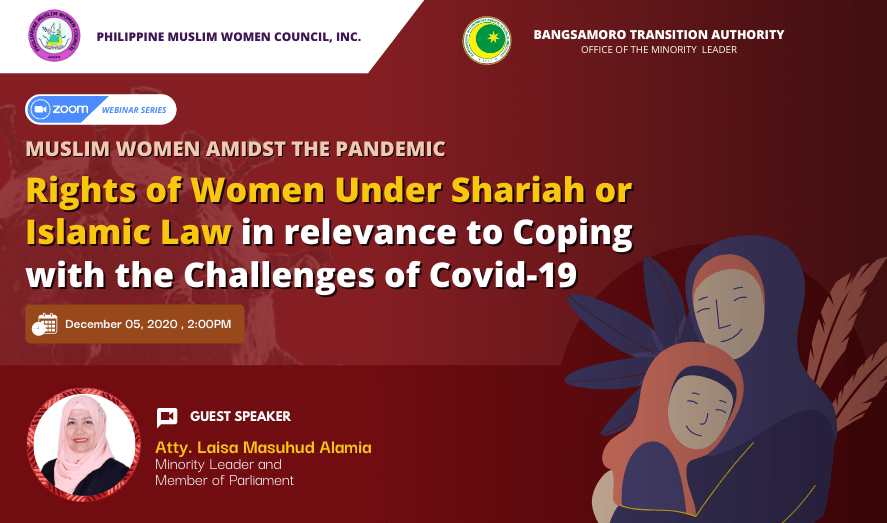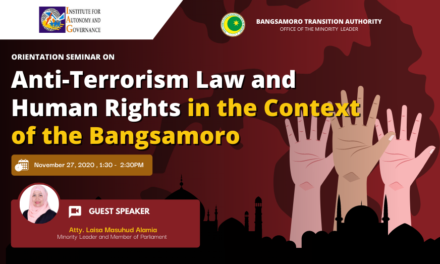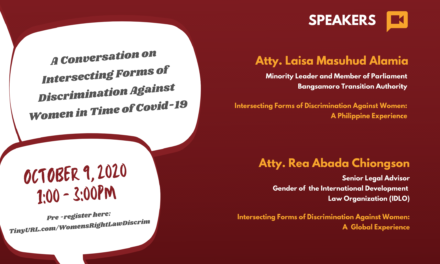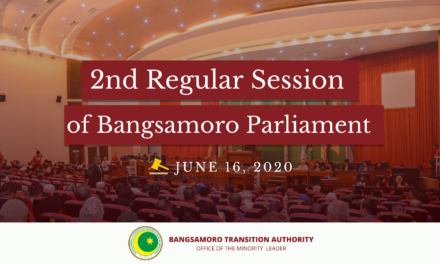While the Covid-19 pandemic has affected people across all walks of life, its effects have been felt in varying degrees. This is especially true in the Philippines, where socioeconomic inequalities leave many vulnerable sectors at a disadvantage. Among them are women who, despite gains towards gender justice in recent years, still face challenges that are inextricably linked to their identity.
Muslim women know this, because they constantly face discrimination based on their faith and gender. She might suffer from an uneven division of labor at home, where she is expected to do household chores while trying to earn a living. This inevitably takes on a heavier toll as families adjust to online learning and work-from-home schemes in the midst of Covid-19. Meanwhile, an absence of leaders in government who acknowledge the rights of both Muslims and women results to a pandemic response that fails to account for Muslim women and their lived realities.
As a long-time advocate for Muslim women’s rights and welfare, Minority Floor Leader Atty. Laisa Masuhud-Alamia has been invited by the Philippine Women Muslim Council (PWMC) to discuss and highlight the rights of women under Shariah/Islamic Law as they cope with the challenges of Covid-19. Her talk is scheduled at 2:00 P.M. on December 5, Saturday, and is part of the PWMC’s webinar series, Muslim Women Amidst The Pandemic: Challenges and Coping Strategies.
The webinar may be accessed through the PWMC’s Facebook Page.








